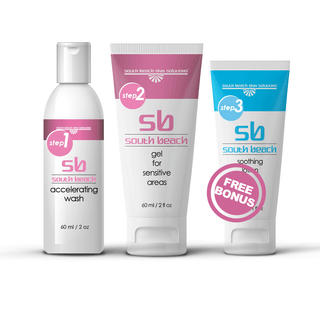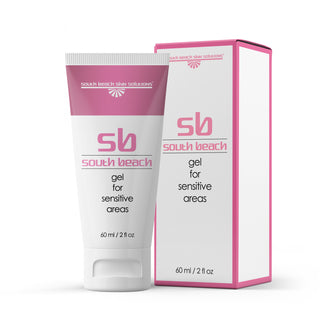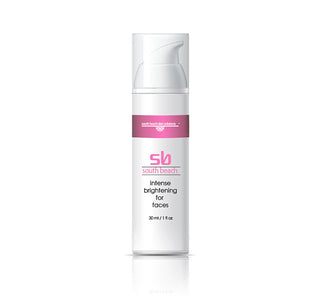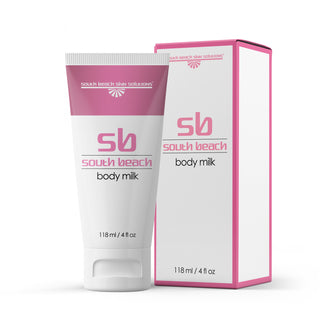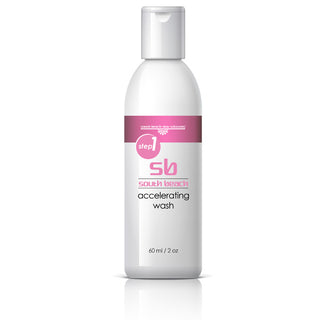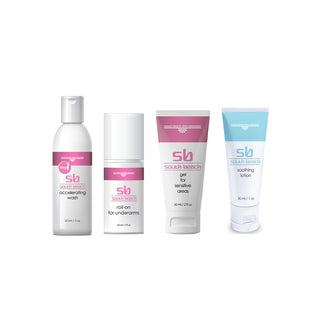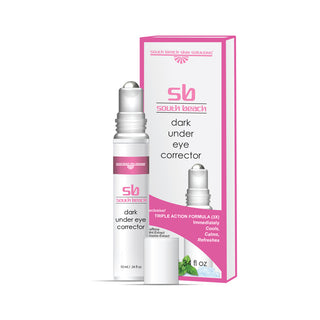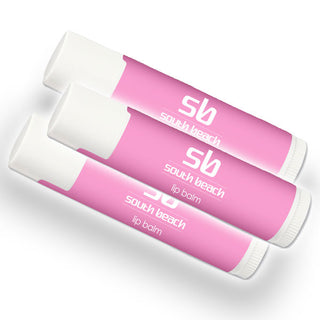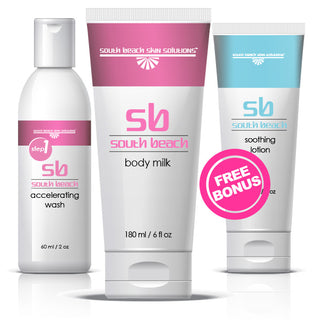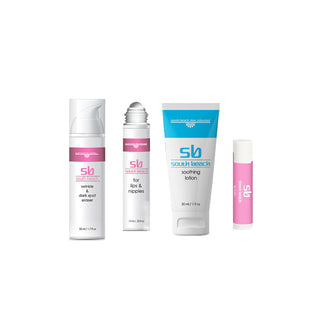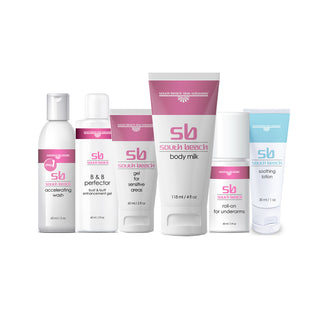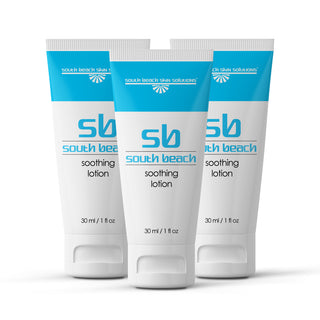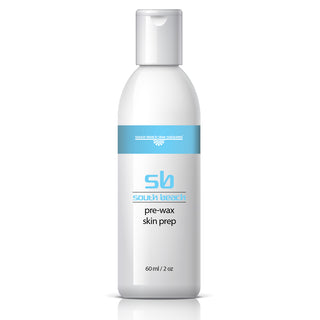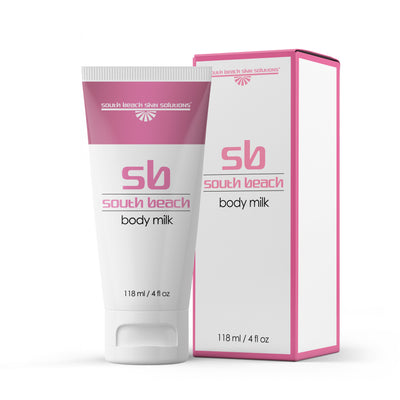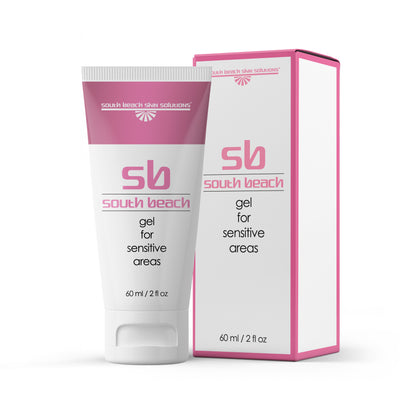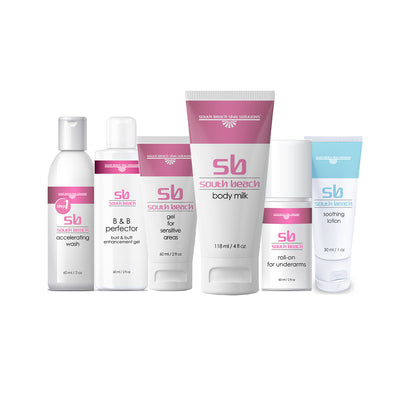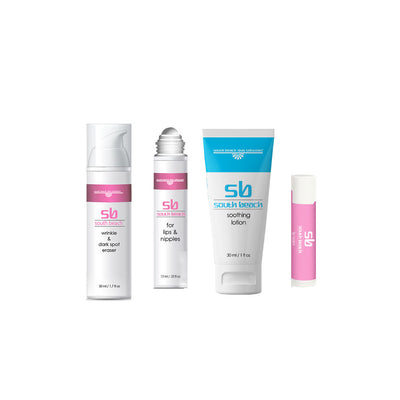Are you looking to elevate your skincare routine and achieve beautiful, radiant skin? Look no further! In this article, we have gathered expert tips and solutions that will transform your skincare game.
With so many products and trends in the beauty industry, it can be overwhelming to find what works best for your skin. But fear not! Our team of skincare experts has curated a list of tried and tested techniques to help you achieve your desired results.
From simple daily habits to more advanced treatments, we have covered everything you need to know to take your skincare routine to the next level. Discover the benefits of incorporating natural ingredients, understand the importance of sunscreen, and learn how to target specific skincare concerns like acne or aging.
Whether you're a skincare newbie or a seasoned enthusiast, our expert tips and solutions are tailored to suit everyone. Get ready to unveil a refreshed and glowing complexion. It's time to invest in yourself and unlock the secrets to beautiful skin.
When it comes to achieving beautiful skin, having a consistent skincare routine is key. A skincare routine not only helps maintain the health and appearance of your skin but also acts as a preventive measure against various skin issues. By following a regular routine, you can ensure that your skin is properly cleansed, moisturized, and protected.
One common mistake many people make is neglecting their skincare routine, especially when life gets busy. However, investing just a few minutes each day can make a significant difference in the long run. A well-rounded skincare routine involves cleansing, toning, moisturizing, and protecting your skin from harmful UV rays.
To get started, it's important to understand your skin type and choose products that are specifically formulated for your needs. Whether you have dry, oily, combination, or sensitive skin, there are skincare products available that can address your concerns and promote a healthy complexion.
Remember, consistency is key when it comes to skincare. Establishing a daily routine and sticking to it will help you achieve the best results. Now, let's delve deeper into the different aspects of a skincare routine and explore the common mistakes you should avoid.
Common skincare mistakes to avoid
When it comes to skincare, it's easy to fall into the trap of common mistakes that can hinder your progress. By being aware of these mistakes and avoiding them, you can ensure that your skincare routine is effective and delivers the results you desire.
One mistake many people make is over-cleansing their skin. While cleansing is an essential step in any skincare routine, excessive cleansing can strip away the natural oils and disrupt the skin's barrier function. This can lead to dryness, irritation, and even breakouts. Instead, opt for a gentle cleanser that effectively removes impurities without causing harm to your skin.
Another mistake is skipping sunscreen. Many people underestimate the importance of sunscreen in their skincare routine. Sunscreen not only protects your skin from harmful UV rays but also helps prevent premature aging, dark spots, and skin cancer. Make sure to choose a broad-spectrum sunscreen with an SPF of at least 30 and apply it generously before sun exposure.
Using too many products at once is another common skincare mistake. While it's tempting to try out every new product that hits the market, using too many products can overwhelm your skin and cause adverse reactions. It's important to introduce new products gradually and monitor how your skin reacts to them. Stick to a minimalistic approach and focus on quality rather than quantity.
Now that we have covered some common skincare mistakes, let's move on to understanding your skin type and how it can guide your skincare routine.
Understanding your skin type
Understanding your skin type is crucial for choosing the right skincare products and developing an effective routine that caters to your specific needs. There are four main skin types: dry, oily, combination, and sensitive. Let's take a closer look at each type and how to identify them.
Dry skin often feels tight, rough, and may be prone to flaking or itching. It lacks moisture and requires extra hydration to maintain a healthy balance. Look for moisturizers with hydrating ingredients like hyaluronic acid and avoid harsh cleansers that can further dry out your skin.
Oily skin is characterized by excessive sebum production, which can lead to a shiny appearance, enlarged pores, and a tendency to develop acne. Choose oil-free or lightweight products that won't clog your pores, and consider incorporating ingredients like salicylic acid or tea tree oil to help control oil production.
Combination skin is a combination of dry and oily areas. Typically, the T-zone (forehead, nose, and chin) is oilier, while the cheeks are drier. This skin type requires a balanced approach, using products that address both dryness and oiliness. Consider using a gentle cleanser, a lightweight moisturizer, and spot treatments for specific concerns.
Sensitive skin is easily irritated and prone to redness, itching, or burning sensations. It's important to choose gentle, fragrance-free products that are specifically formulated for sensitive skin. Avoid harsh exfoliants and opt for soothing ingredients like aloe vera or chamomile.
Identifying your skin type is the first step towards building a customized skincare routine. Now, let's explore the essential skincare products that should be a part of your basic routine.
Essential skincare products for a basic routine
Understanding your skin type is the first step in creating an effective skincare routine. Each skin type requires different care and attention. There are four main skin types: normal, dry, oily, and combination.
Normal skin is characterized by a balanced moisture level and minimal imperfections. If you have normal skin, consider yourself lucky! Your skincare routine should focus on maintaining your skin's natural balance and preventing any potential issues.
Dry skin lacks moisture and can often feel tight or itchy. It may also appear dull or flaky. To combat dryness, opt for hydrating skincare products that are rich in moisturizing ingredients like hyaluronic acid and ceramides. Don't forget to drink plenty of water to keep your skin hydrated from within.
Oily skin tends to produce excess sebum, leading to a shiny or greasy appearance. It is also prone to acne and blackheads. Look for oil-free and non-comedogenic products that help control oil production and keep your pores clear. Incorporating clay masks and exfoliating acids into your routine can also help regulate oiliness.
Combination skin is a mixture of dry and oily areas. Typically, the T-zone (forehead, nose, and chin) is oilier, while the cheeks and jawline are drier. Balancing the needs of both dry and oily areas can be challenging, so it's important to choose products that cater to both concerns. Consider using lightweight moisturizers and targeted treatments to address specific areas.
Advanced skincare products for targeted concerns
Building a basic skincare routine is essential for maintaining healthy skin. Regardless of your skin type, there are a few key products that should be a part of everyone's routine.
Cleanser: Start your routine with a gentle cleanser that effectively removes dirt, makeup, and impurities without stripping your skin of its natural oils. Look for a cleanser that suits your skin type and doesn't leave your skin feeling tight or dry.
Toner: After cleansing, apply a toner to balance your skin's pH levels and prep it for the next steps. Toners can also provide additional hydration and help remove any residue left behind by your cleanser.
Moisturizer: Hydration is crucial for all skin types. Choose a moisturizer that suits your skin's needs, whether it's lightweight for oily skin or rich and nourishing for dry skin. Moisturizers help lock in moisture, strengthen the skin barrier, and keep your skin looking plump and radiant.
Sunscreen: One of the most important steps in any skincare routine is sunscreen. Protecting your skin from harmful UV rays is vital in preventing premature aging, sunspots, and even skin cancer. Choose a broad-spectrum sunscreen with at least SPF 30 and apply it generously every day, even on cloudy or rainy days.
Expert tips for healthy and radiant skin
In addition to the essential products, you may want to incorporate advanced skincare products to target specific concerns or address any skin issues you may have. These products can help you achieve the next level of skincare.
Serums: Serums are concentrated formulations that contain active ingredients designed to target specific skincare concerns. Whether you're looking to brighten, firm, or hydrate your skin, there is a serum out there for you. Look for serums with ingredients like vitamin C, hyaluronic acid, or retinol, depending on your needs.
Exfoliants: Exfoliating your skin regularly helps remove dead skin cells, unclog pores, and promote cell turnover. There are two main types of exfoliants: physical and chemical. Physical exfoliants use granules or brushes to manually scrub away dead skin cells, while chemical exfoliants use acids or enzymes to dissolve them. Choose the method that suits your skin type and sensitivity.
Face masks: Face masks are a great way to give your skin an extra boost of hydration, brightening, or purification. Whether you prefer sheet masks, clay masks, or overnight masks, they can provide intense treatment to address specific concerns. Incorporate a face mask into your routine once or twice a week for optimal results.
Eye creams: The delicate skin around the eyes requires special attention. Eye creams are formulated to target concerns like dark circles, puffiness, fine lines, and wrinkles. Look for eye creams that contain ingredients like caffeine, peptides, or hyaluronic acid to address your specific concerns.
Natural remedies and DIY skincare recipes
Achieving healthy and radiant skin goes beyond just using the right products. Here are some expert tips to incorporate into your skincare routine:
Consistency is key: Consistency is the secret to success when it comes to skincare. Stick to your routine and give your skin time to adjust and show results. Don't expect overnight miracles, as skincare is a long-term commitment.
Double cleanse at night: If you wear makeup or sunscreen, double cleansing is essential to ensure all traces are removed. Start with an oil-based cleanser to dissolve makeup, followed by a water-based cleanser to remove any remaining impurities.
Don't forget your neck and hands: Your neck and hands are often overlooked in skincare routines, but they can show signs of aging too. Extend your skincare products to your neck and hands to keep them hydrated and youthful-looking.
Avoid touching your face: Touching your face can transfer dirt, bacteria, and oil from your hands to your skin, leading to breakouts and irritation. Try to avoid touching your face throughout the day, especially if your hands are not clean.
Stay hydrated: Drinking plenty of water is not only good for your overall health but also for your skin. Hydrated skin is plumper, more radiant, and less prone to dryness or wrinkles. Aim to drink at least 8 glasses of water a day.
Professional skincare treatments and procedures
If you prefer a more natural approach to skincare, there are several ingredients and DIY recipes you can incorporate into your routine. Here are a few examples:
Honey: Honey is a natural humectant that helps attract and retain moisture in the skin. It also has antimicrobial properties that can help with acne and inflammation. Use raw honey as a gentle cleanser or mix it with other ingredients for a hydrating face mask.
Aloe vera: Aloe vera is known for its soothing and healing properties. It can help calm irritated or sunburned skin and reduce redness. Apply fresh aloe vera gel directly to your skin or look for skincare products that contain aloe vera.
Oatmeal: Oatmeal is great for soothing and exfoliating the skin. You can blend oats into a fine powder and mix it with water or honey to create a gentle exfoliating scrub or add it to a bath for a moisturizing and calming soak.
Green tea: Green tea is packed with antioxidants that help fight free radicals and protect the skin from damage. Brew a cup of green tea, let it cool, and use it as a toner or mix it with other ingredients for a refreshing face mist.
The role of diet and lifestyle in skincare
If you're looking for more advanced solutions or have specific skincare concerns, professional skincare treatments and procedures can offer effective results. Here are a few examples:
Chemical peels: Chemical peels involve applying a chemical solution to the skin to exfoliate and regenerate new skin cells. They can help improve skin tone, texture, and address concerns like acne, hyperpigmentation, and wrinkles.
Microdermabrasion: Microdermabrasion is a non-invasive treatment that uses a diamond-tipped wand or crystals to exfoliate the outermost layer of the skin. It can improve the appearance of fine lines, acne scars, and sun damage.
Laser treatments: Laser treatments use light energy to target specific skin concerns like pigmentation, acne scars, or wrinkles. They can stimulate collagen production and improve overall skin texture and tone.
Injectables: Injectables like Botox and dermal fillers can help smooth wrinkles, restore volume, and enhance facial contours. These treatments are typically performed by qualified healthcare professionals.
Achieving beautiful skin is within reach
While skincare products and treatments play a significant role in achieving beautiful skin, your diet and lifestyle also impact your skin's health. Here are a few tips to keep in mind:
Eat a balanced diet: A healthy, balanced diet rich in fruits, vegetables, lean proteins, and whole grains can provide essential nutrients for your skin. Incorporate foods that are high in antioxidants, vitamins, and omega-3 fatty acids to promote skin health.
Get enough sleep: Lack of sleep can lead to dull, tired-looking skin and exacerbate skin issues like acne or eczema. Aim for 7-9 hours of quality sleep each night to allow your skin to repair and rejuvenate.
Manage stress: Chronic stress can trigger inflammation and worsen skin conditions like acne and psoriasis. Find healthy ways to manage stress, such as exercise, meditation, or engaging in hobbies you enjoy.
Protect yourself from the sun: Sun exposure is one of the leading causes of premature aging and skin damage. Wear sunscreen daily, seek shade, and wear protective clothing to shield your skin from the sun's harmful rays.



















